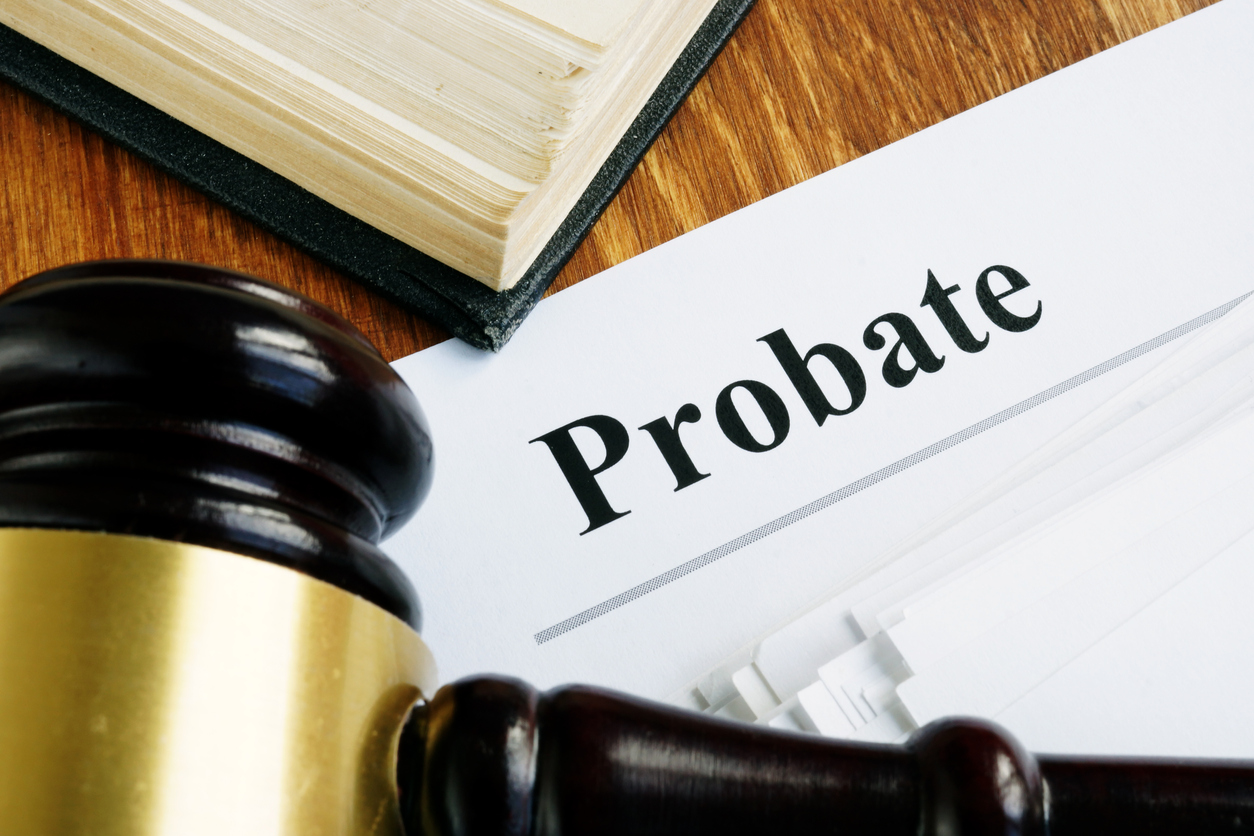
Probate sign, stack of papers and gavel.
Contentious probate refers to a dispute relating to the way a deceased person’s estate is administered. Put simply, it is a disagreement that occurs after someone has passed away about the validity of their will or the distribution of their assets.
Unfortunately, such disagreements are not uncommon. All too often, the relatives and friends of a deceased person can feel disappointed if they are left out of the person’s will or are not left the assets which they feel they deserve.
This can happen for a variety of reasons. Often, it is simply because the person’s will hasn’t been updated for some time and, therefore, individuals who may have become very important to the deceased person in later life, including grandchildren, have not been included.
It can also be the case that, before death, the deceased person promised certain items or assets to someone but did not update their will accordingly. However, without this being recorded in any legitimate way – i.e., within the will – then it is difficult to know whether the person was genuine in making good on their promises. Unfortunately, without considerable supporting evidence, instances like this are not usually enough of a reason on their own to effectively contest a person’s will.
That said, there is provision made for family members and other dependants who have not been made suitable financial provision for in a person’s will. The most important piece of legislation relating to this is the Inheritance (Provision for Family and Dependants) Act 1975. This Act sets out who can claim if there is evidence that the will did not make sufficient financial provision for someone. In these cases, the claim would be for what might reasonably be expected to be received after a loved one has passed away.
In general, however, there are three legitimate reasons that someone might challenge a will. These include claims that:
- the will is invalid; because
- the deceased was put under pressure to change the will to benefit certain beneficiaries; or
- the deceased didn’t have sufficient mental capacity when they made the will; or
- the will has been forged or altered illegally.
For a will to be valid it must be made in writing, of the writer’s own volition and without influence. The person writing the will must be over the age of 18, of sound mind, and have the presence of two witnesses. The will must then be signed by the two witnesses in the presence of the person who created the will, who must also sign it.
It can be noted that as people are generally living longer there has been an increase in age-related dementia, which has in turn led to an increase in people disputing wills on the grounds that the person making the will did not have full mental capacity.
This is why it is so important to ensure that your will is written properly by a qualified legal professional and regularly updated when circumstances change, in order to make sure you leave your assets – money, property or personal items – to the people you wish to leave them to.
By getting your will right, and following the advice of an experienced probate solicitor, you can go some way to avoiding a contentious probate situation occurring for your family and loved ones following your passing.
If, however, there is a genuine reason to dispute a will It is important to be aware that there is a rigid time frame on making a claim. Claims must be made within 6 months of the grant of probate, or of the letters of administration if the deceased did not make a will.
Here at Hutchinson Thomas, we have extensive experience of dealing with contentious probate, including every kind of estate and every conceivable family circumstance. All our team have WIQS accreditation and three are full STEP (Society for Trusts and Estates Practitioners) members, so you know you are in experienced, qualified hands.
If you require assistance dealing with contentious probate, our expertise and practical approach can help you have peace of mind and reach a swift resolution.
If you would like more information or advice on any issues relating to wills, trusts or probate, contact Simon Thomas on 01639 640164 or email simon.thomas@hutchinsonthomas.com
